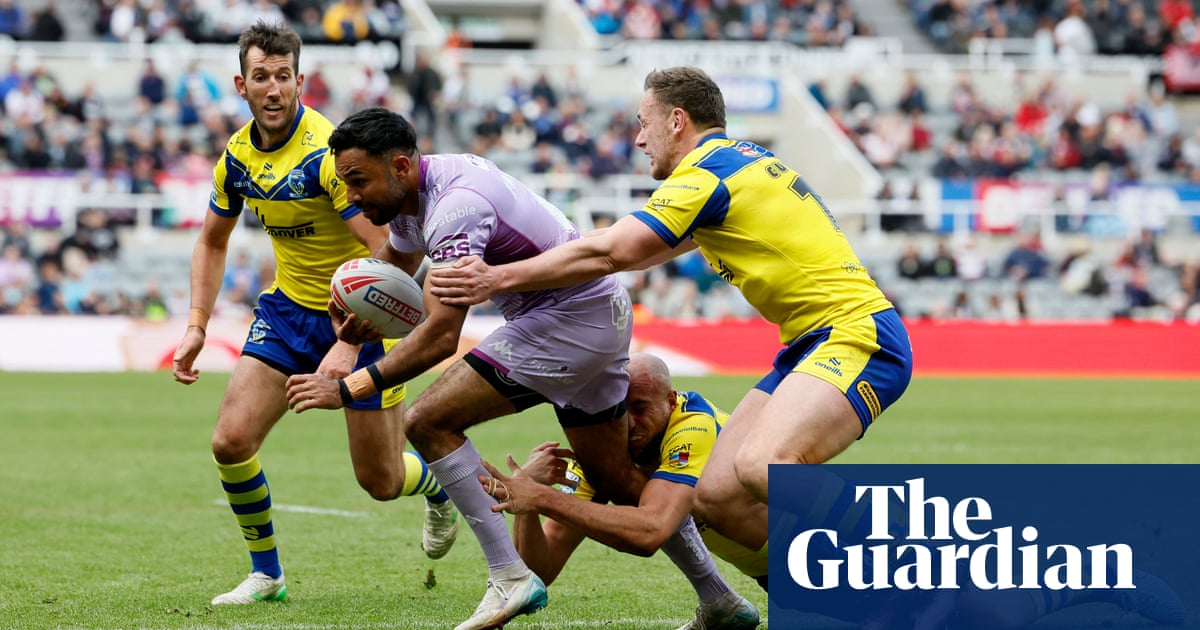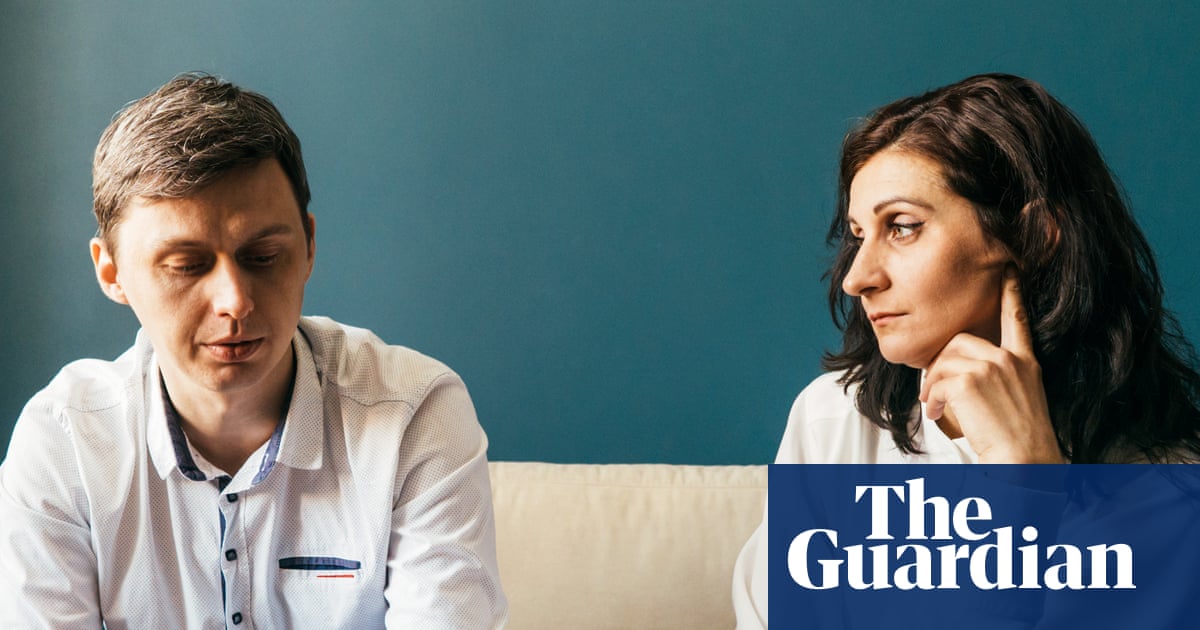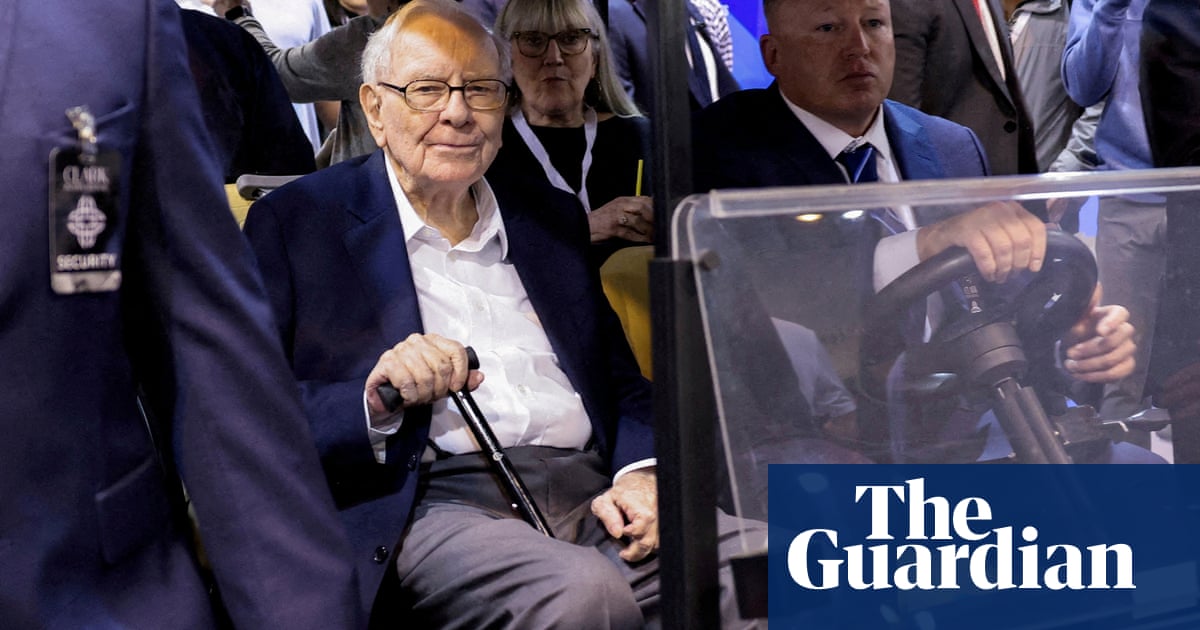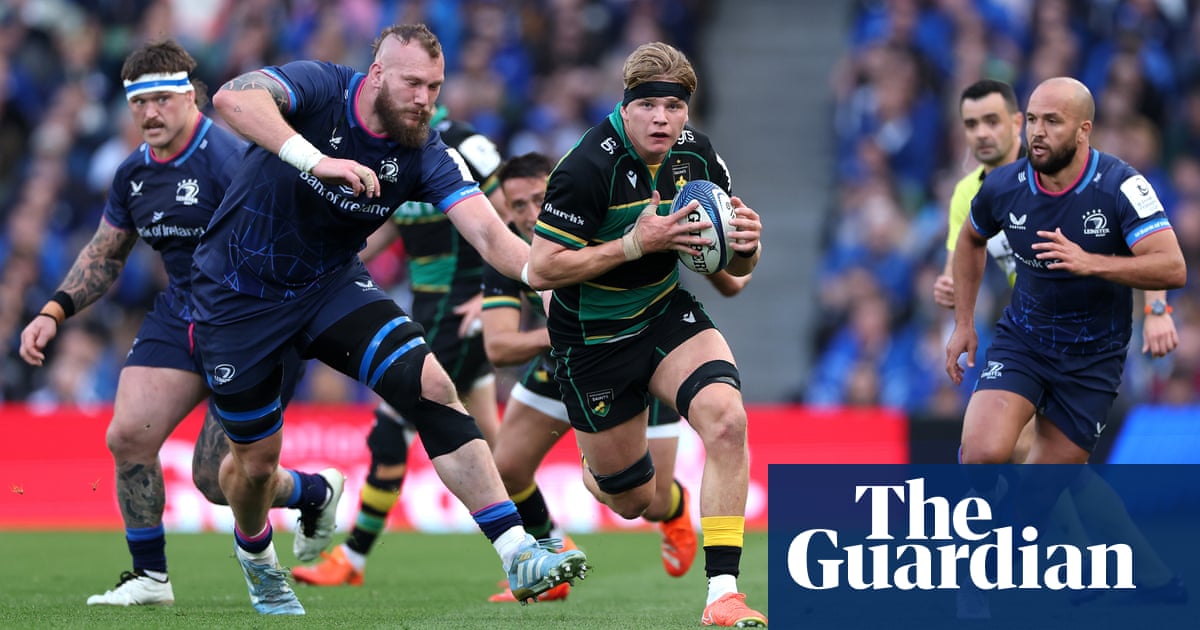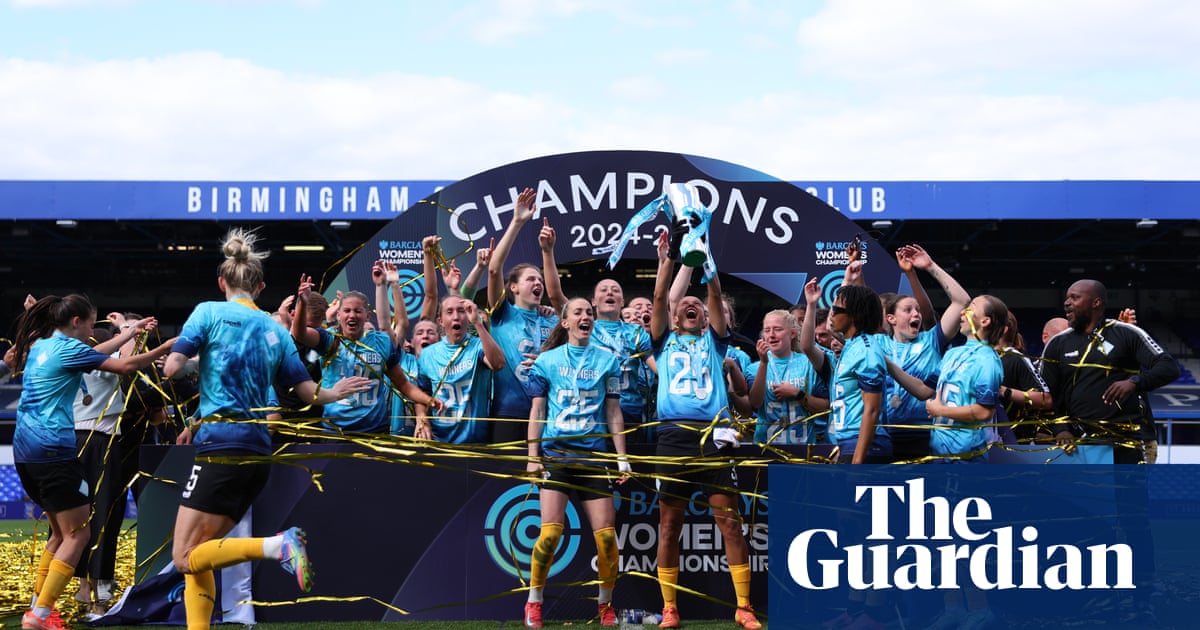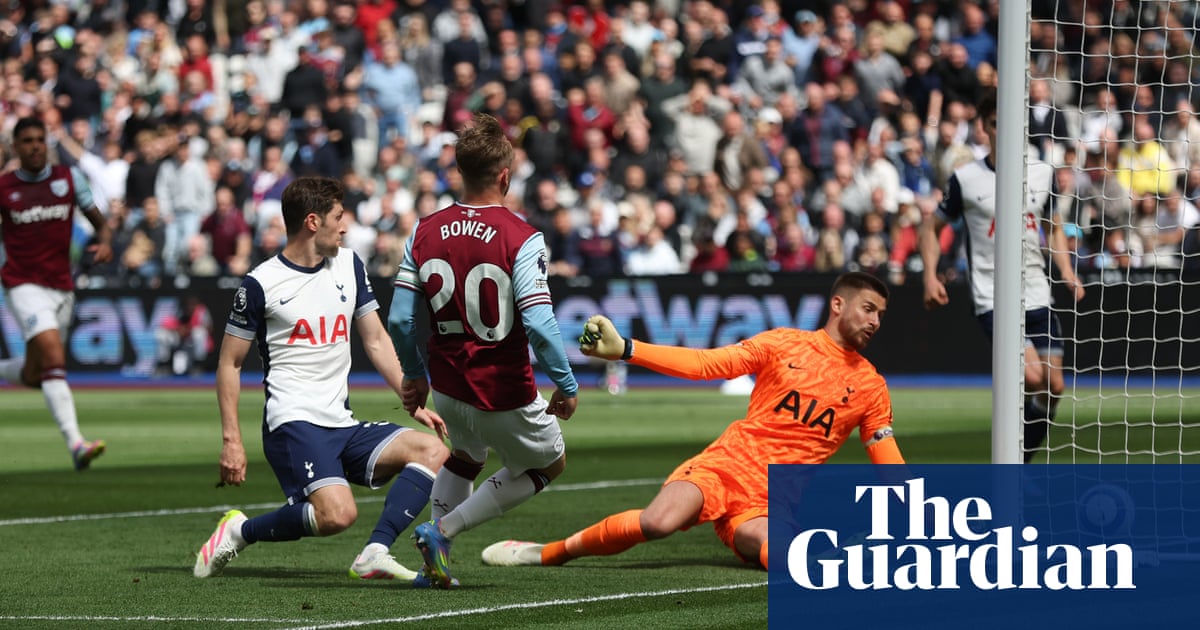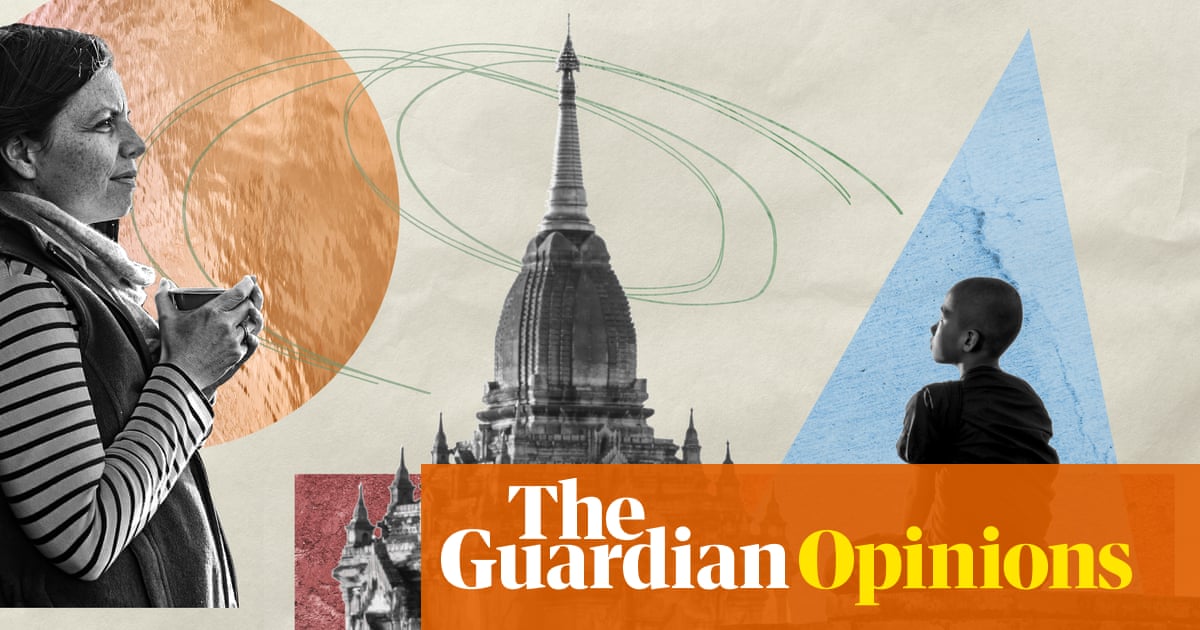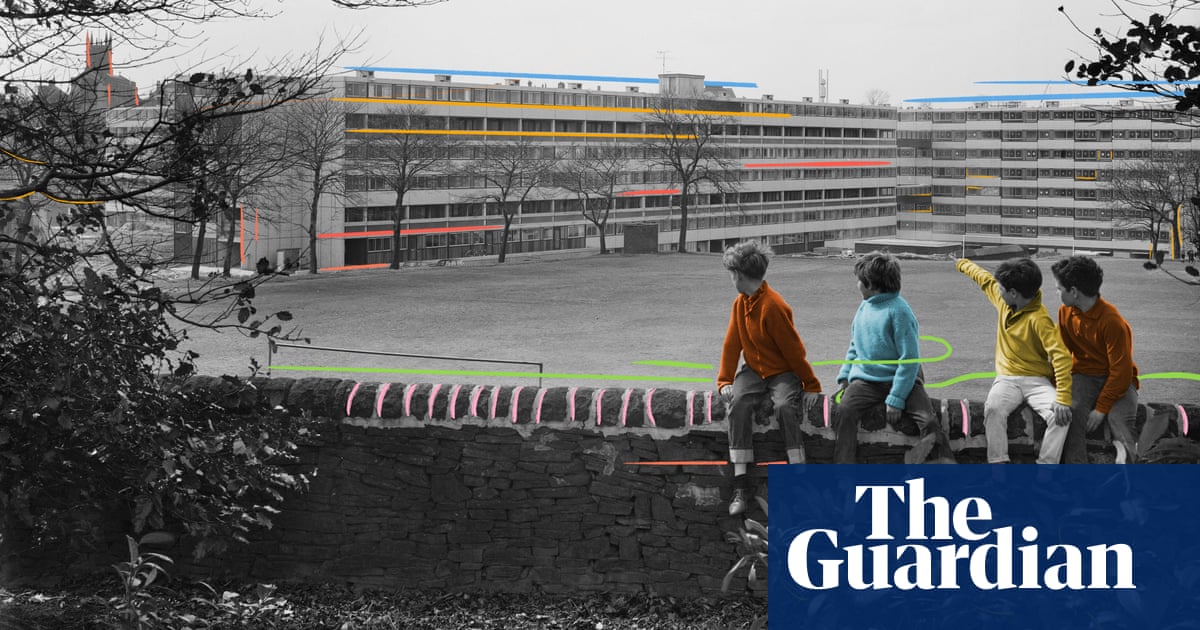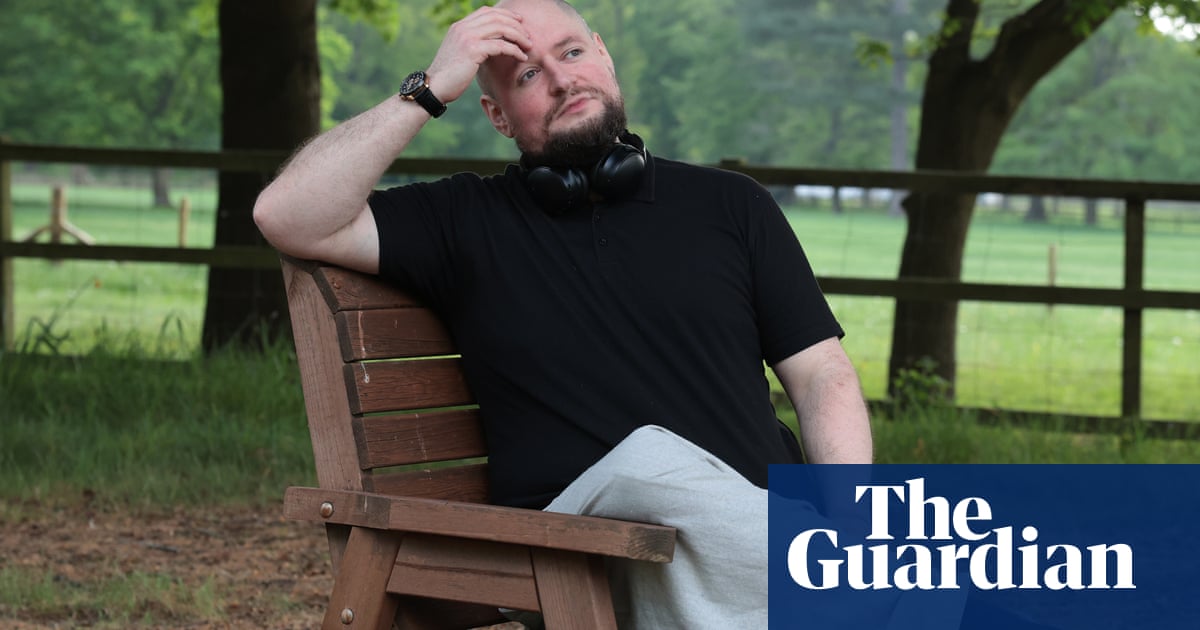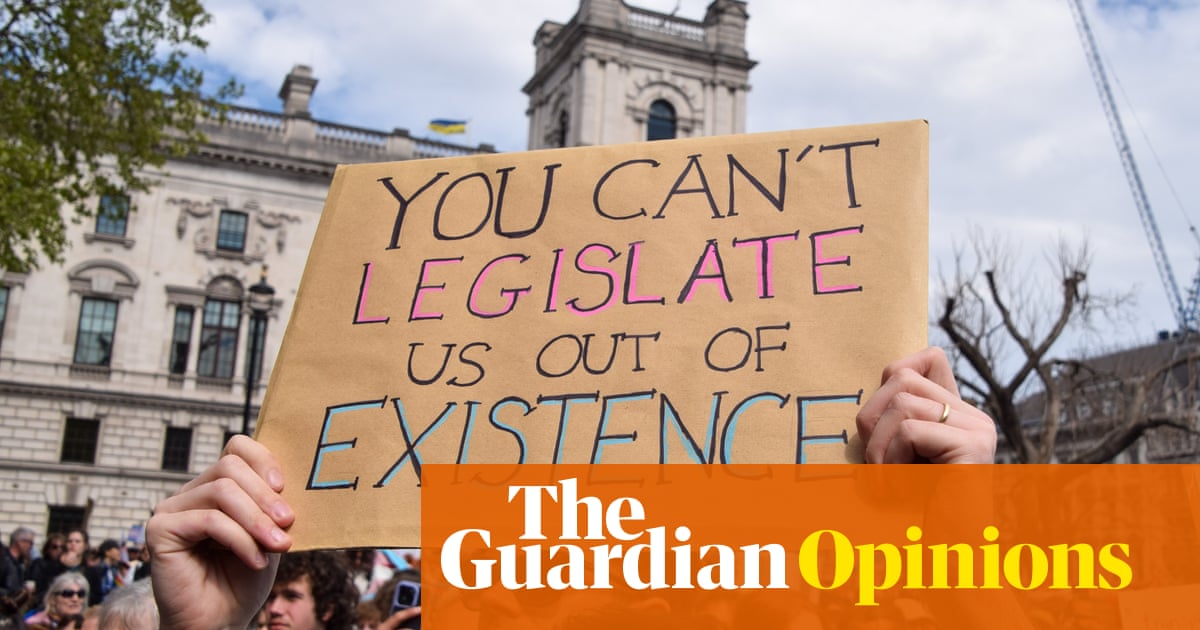Born in Newcastle in 1987, Vicky Pattison graduated from Liverpool John Moores University with a degree in drama. At 22, she joined the cast of MTV’s reality TV show Geordie Shore, where she starred from 2011 to 2014. In 2015, she won I’m a Celebrity … Get Me Out of Here! and later became a panellist on Loose Women. She has also made documentaries exploring alcoholism and the impact of deepfake pornography. Her new dating show, The Honesty Box, is on E4 and available to stream on Channel 4. She is married to former Towie cast member Ercan Ramadan.
Dad says they could never get me out of that car. I didn’t even drive it – I just used to sit and watch the telly in it with my babies. I kept my hair white-blond until I was 21, when I decided I wanted to look like Cheryl Cole. I’ve never looked back!
This photo was taken in the house I grew up in, in Wallsend. I look really content. I was very curious and happy, but a bit of a whirlwind and probably spoilt rotten. I like to be the centre of attention. Always have. I imagine I was, at times, torture.
I had a really nice childhood. It had its complications, its ups and downs, like everyone’s does. I have a lovely mum and dad – both of them loved me very much. But my dad is ill. He’s an alcoholic, and he always will be an alcoholic, quite profoundly. Some days he’s winning that battle, and other days he’s not. At the moment, he’s doing really well, and I’m really proud of him. But there were periods when I was younger where he didn’t understand his illness, where he was deep in his addiction and it controlled him. There were moments that were a bit loud and a bit scary and actually quite confusing for a little girl to navigate. His addiction didn’t dominate my childhood by any means – Mum did a very good job of shielding me from a lot of it – but I saw more than I should have. There were some moments I would rather not remember.
I was a typical teenage girl in Newcastle. I had a Saturday job in Shellys shoe shop, and then later on in Kookaï. I had an older boyfriend – an apprentice carpenter – who drove a Ford Focus. I thought I was so cool. But I was getting on Mum’s nerves. According to her, from the age of 15 to 25 I was “a raging arsehole”. I could not be told, I could not be tamed. When I discovered alcohol and boys, I was feral.
I loved uni, but after three years of stealing toilet rolls from the local bars and spending all my money on Jägerbombs and Pot Noodles, I was ready for a more comfortable lifestyle. I thought I was going to graduate and get a job in a big city and become a famous journalist, but instead I went back to Newcastle with my tail between my legs, and started working at bars and nightclubs.
At the time there were a load of TV producers in the area trying to launch the UK equivalent to Jersey Shore, which was a huge success in the US. I became their unofficial tour guide – they’d point someone out and I’d say: “He talks a good game, but he cannae pull a muscle.” Or: “She goes over like a granny on ice skates – she’d be fucking great.”
They wanted me and my friends to join the cast, but, as I say, we were feral. We weren’t sitting around looking perfect and talking about vajazzles like the cast of The Only Way Is Essex, so I was reluctant to say yes. But, then, after one particularly wild night out with a producer, I changed my mind. The evening ended up with an argument between me and another girl, a drink got thrown, and then we all ran off to a gay club called Powerhouse until 5am, before I had to carry the producer back to his hotel. When we got there, he was like: “Vicky, don’t audition, don’t meet the execs, just be on the show.” I told him if he genuinely meant it, he’d have to call me tomorrow. He did, and the rest is history.
It was the early days of reality TV, so I had no idea what I was letting myself in for. While I’m sure there were good moments, I see those years as some of the hardest in my life. I don’t want to be too disparaging about Geordie Shore, because ultimately there is an element of accountability that I have to accept. But I was too young to have my life on TV. I was stuck in this cycle of feeling controlled and manipulated by the show, and the only way to calm myself down was alcohol. I am my dad’s daughter, and I’m not a nice drunk, which is something I’ve had to work on over the years. But back then I became this over-the-top caricature, and I felt like the show capitalised on me being the worst version of myself. It broke my mum’s heart. She would say: “Six weeks before you go off to do a new series, I lose my daughter.” This bright, bubbly person became completely withdrawn.
after newsletter promotion
I tried to leave the show loads of times – to the extent it became a running joke. But agents, MTV, producers, all of them said: “What are you going to do? There’s nothing else for you.” And I believed it. “Stay where your bread is buttered” was a narrative I was fed. It was completely reinforced by the fact the girls on Made in Chelsea and Towie were always so beautifully put together and as a result got deals with fashion and beauty brands. Everyone wanted them in their nightclubs and in their dresses – nobody wanted the Geordie Shore girls anywhere. It kept me small and doubting myself.
By series nine, I just wanted to grow up. I took a leap of faith, left my agents, and found a new, all‑female team. Quickly, they saw what everyone else saw, which was a broken little girl who was desperate to be liked; someone who had sacrificed respect for attention. Rather than capitalise on that, they put me in therapy. They tricked me, saying it was phobia therapy before I went into the I’m a Celebrity … jungle. As soon as I walked in, I realised I’d been hoodwinked and was really hostile to the process. For a working-class girl from the north‑east, therapy had a big stigma attached to it. But four hours later, all of my pretence was gone. I was a different person. I was me.
I’m by no means perfect. I still live in habitual fear that I’m going to wake up one morning and everyone’s going to say: “She is nothing special.” That everything I’ve worked for will evaporate. But over time I’ve made sense of my dad’s illness, my relationship with alcohol, and all of my anger. I was self-sabotaging over and over again because I didn’t like who I was and couldn’t see a way out.
Learning to love yourself is the hardest thing. And I’m not there. I don’t know anyone who is. But if anyone spoke to my friends the way I used to speak to myself, I would set them on fire. The goal now is to get back to that three-year-old girl in the picture – the one who was always so happy, especially around her friends and family. To slowly feel more like that little person. Only minus the hair.

 4 hours ago
7
4 hours ago
7
